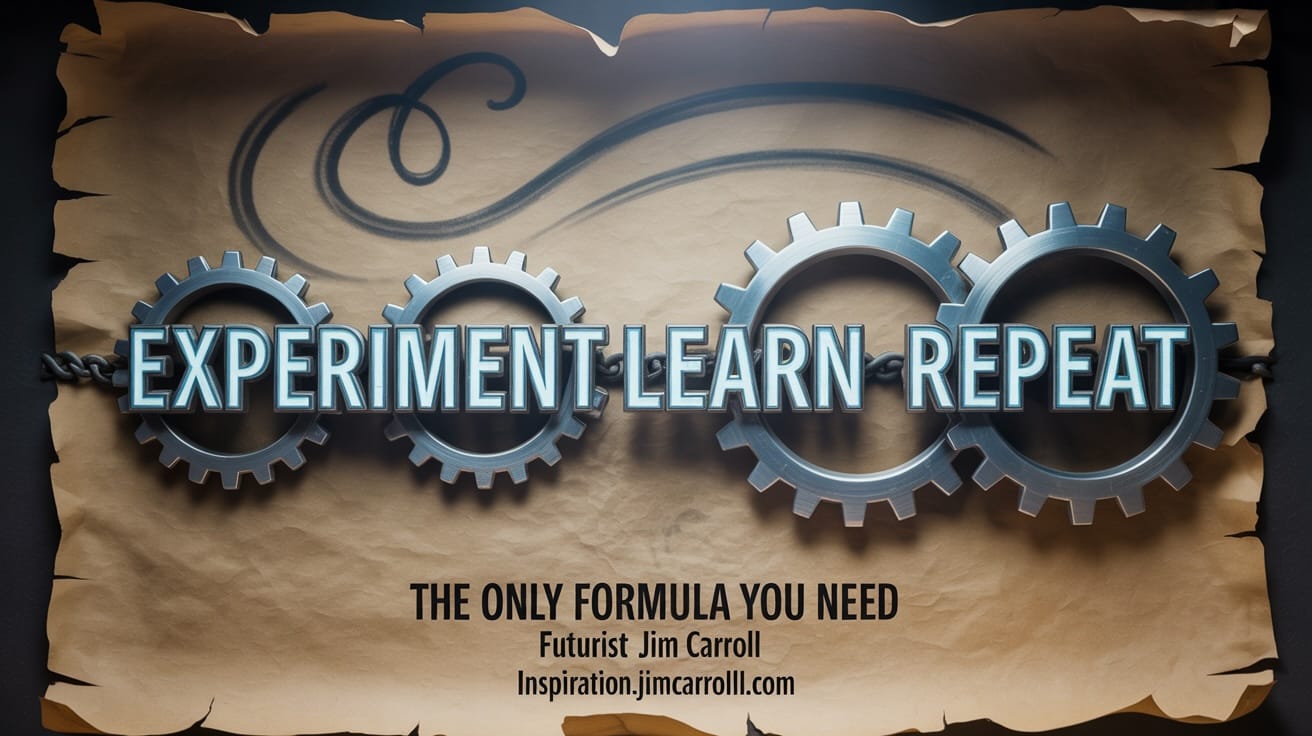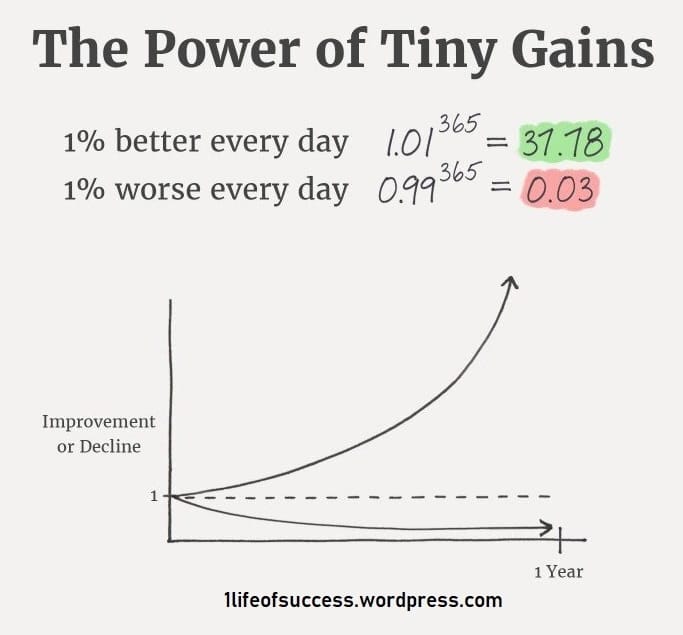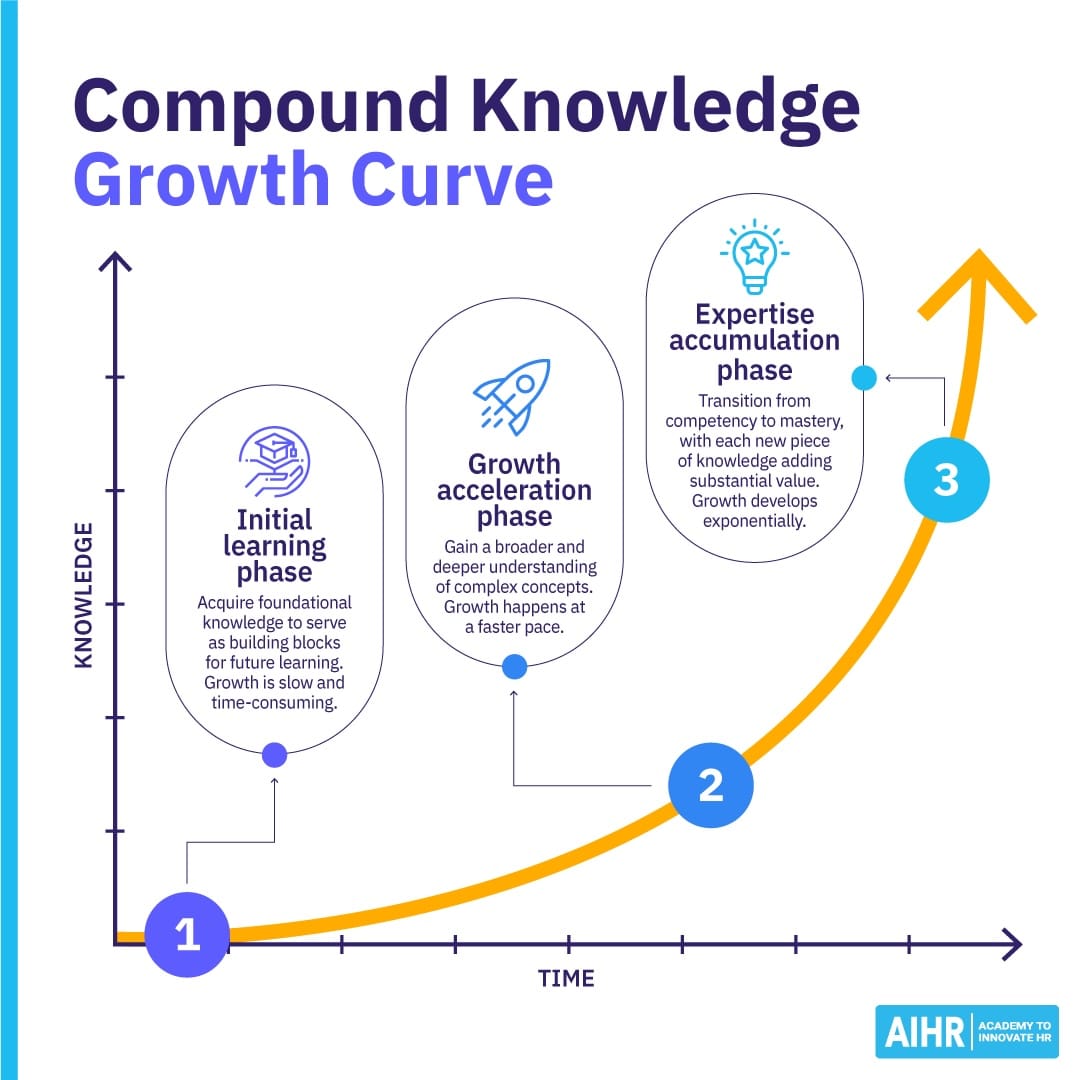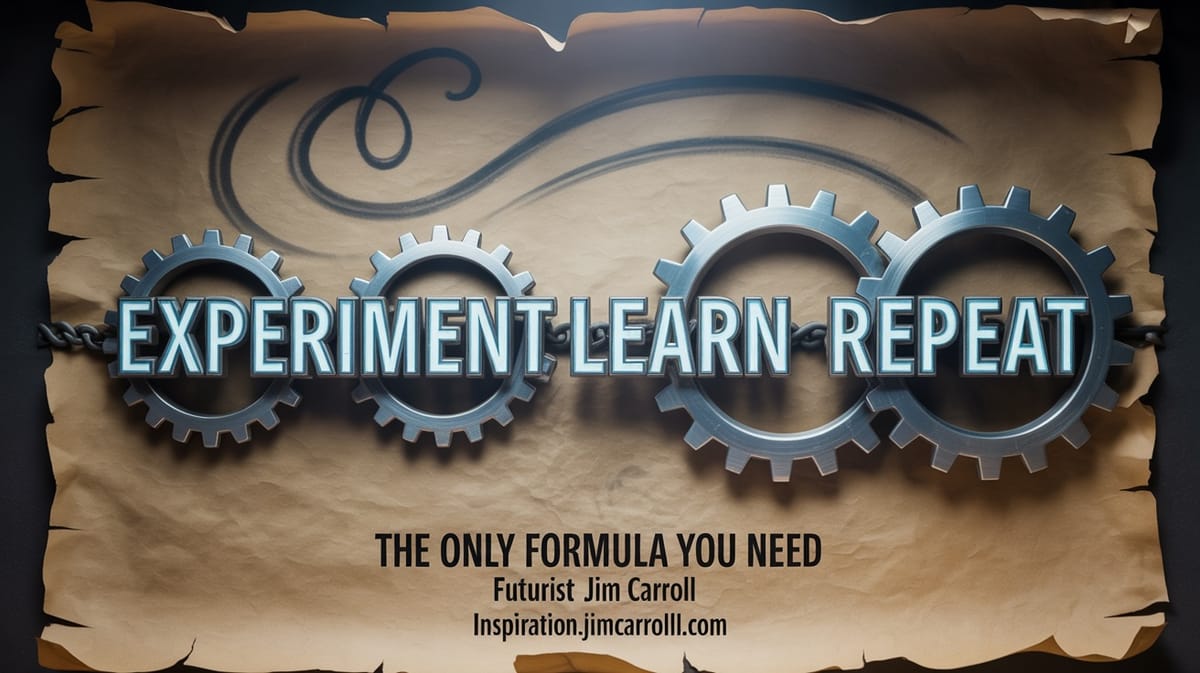"Experiment learn repeat. The only formula you need!" - Futurist Jim Carroll

Wrap your head around the growth of knowledge - and what you need to enhance your knowledge to deal with its reality.
You should know that you don't know what you need to know.
You should know that you need to know it.
And then, set out to know it.
When you do so, know that you can only know if you get involved with it.
Get involved with it.
You'll probably fail.
But that's ok because you've learned about it,
So do it again.
Put this on repeat.
Compound what you know.
That's what you need to know. Warren Buffet said it best:
“Read 500 pages every day. That’s how knowledge works. It builds up, like compound interest. All of you can do it, but I guarantee not many of you will do it.”
In that context, keep in mind the idea of the Power in Tiny Gains. This graph says it all.

Think about this idea of compounding in the context of knowledge. Hit up the article, The Power of Compound Knowledge for HR: 6 Steps To Earn Learning Dividends. It's here. The compounding growth curve idea is that knowledge—like compound interest—builds on itself over time, leading to exponential improvement. Here's the gist of what you need to know.

To put the article in context, there are three phases of knowledge growth:
- Initial learning: You start by acquiring foundational knowledge. Growth is slow because there's not much to build on.
- Growth acceleration: Once core understanding is in place, learning becomes faster and more efficient—especially when diving into more advanced concepts.
- Expertise accumulation: At this stage, each new bit of knowledge has multiplier effects, helping you rapidly deepen expertise and tackle complex challenges
Think about all that in the context of my idea: Experiment. Learn. Repeat. Let's take that apart:
- Keep in mind the importance of experimentation. Too often, we think of an 'experiment' as something confined to a lab. But in the context of knowledge, experimenting means simply trying things out. It's asking, 'What if I tried learning this way?' or 'What happens if I apply this new concept to my daily work?' It's a low-stakes, high-reward approach to discovery.
- link the idea of knowledge compounding to your experiments. While reading 500 pages a day is a powerful habit, remember that true compounding often comes from doing things. Don't just consume knowledge; design mini-experiments. Can you apply a new concept from that article to a current project? Can you teach someone else what you've just learned? Can you set up a simple test to see if a new idea holds? These deliberate actions turn passive intake into active, compounding knowledge.
- and be ready to fail! Always remember that failure is not the end of the road; it's the richest part of your experiment. Think of failure as immediate, personalized feedback. It tells you what didn't work, why it didn't work, and, most importantly, illuminates a path forward. Each 'failed' attempt refines your approach, making your next 'Experiment' more informed and effective."
- put all this on repeat! This isn't just about doing the same thing twice. It's about iterative improvement and deepening your mastery of new knowledge. Each repetition builds on the last, solidifying neural pathways and revealing new layers of understanding. It's how nascent knowledge transforms into ingrained skill, how simple facts evolve into profound insights, and how you genuinely 'own' what you know.
New knowledge? Start slow, and build a solid foundation. As your base grows, your pace of knowledge acquisition speeds up. Before long, every new insight has a far greater impact—turning your learning into a powerful compounding engine.
That’s the compounding growth curve—strategic, continual learning that accelerates over time.
Call it just-in-time knowledge on steroids.
— — —
Futurist Jim Carroll has long known that there is a lot that he doesn’t know that he should try to know, so he sets out to try to know it. This idea has worked out well for him.

